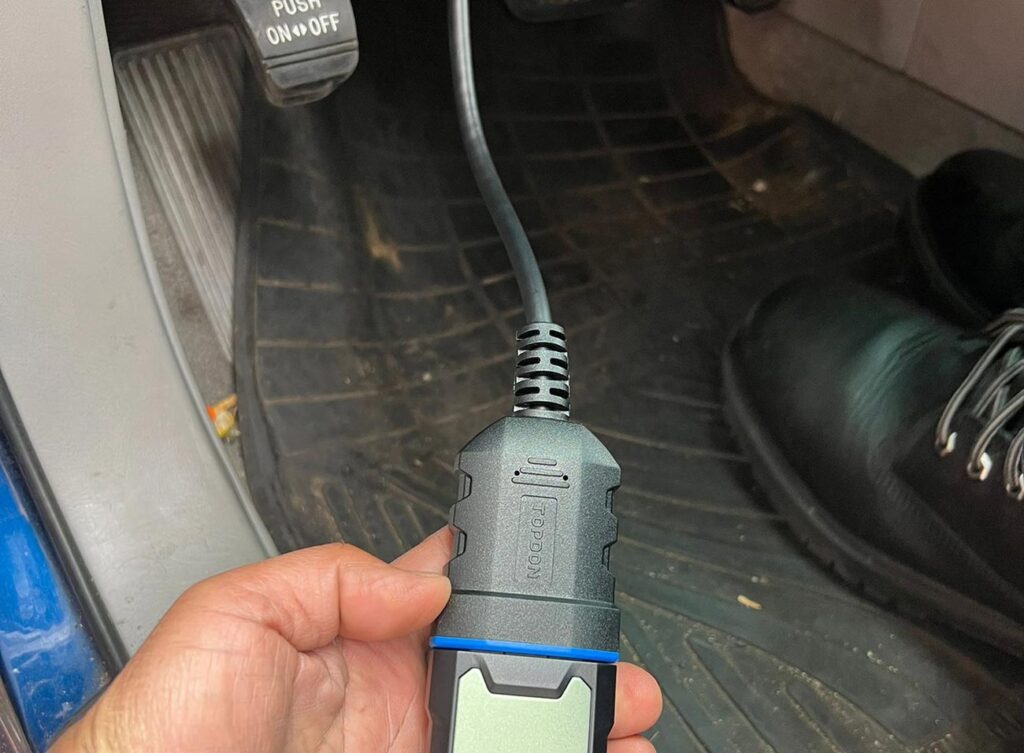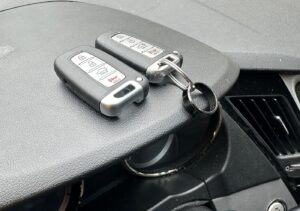Ever turned your car key and felt something wasn’t right? Maybe it took a few tries to start, or the key felt stuck? These little things might seem normal, but they could be early signs that your ignition cylinder is failing. In this post, we’ll explain what the ignition cylinder does, why it wears out over time, the signs you should never ignore, and what you can do to prevent bigger problems. No complex words—just simple info to help you stay safe and avoid getting stranded.
What Is an Ignition Cylinder?

Your ignition cylinder is more than just where you stick your car key—it’s the gateway to your vehicle’s power. When you turn that key, the ignition cylinder sends a signal that sets off a chain reaction in your ignition system—from fuel delivery to spark plug firing—everything depends on it.
- It Starts the Whole Show
Turn the key, and the ignition lock cylinder wakes up the car engine by connecting the battery to the ignition system. - Works Hand-in-Hand with the Ignition Coil
The cylinder triggers the ignition coil, which then creates the voltage needed to spark life into the engine. - Fuel Meets Fire at the Right Time
It plays a role in timing, making sure fuel and spark meet perfectly so your engine runs smoothly. - Controls More Than You Think
From powering accessories to engaging the starter motor, the ignition cylinder handles several behind-the-scenes tasks. - Locks, Keys, and Security
It’s built with locks that only your car key can turn—part of your vehicle’s anti-theft system. - Not Just a Mechanical Part
It’s the bridge between old-school keys and smart engine control—without it, your engine won’t even blink.
Why Ignition Cylinders Fail Over Time
Ignition cylinders age like anything else in your car. They quietly wear down after years of turning keys, picking up dirt, or just being ignored. By knowing why they fail, you’re one step ahead, ready to spot trouble before it leaves you stranded.
Everyday Wear and Tear
Each time you turn the key, small metal parts inside the ignition lock cylinder rub against each other. Over the years, this adds up. The fit gets loose, turns get rough, and one day, click, nothing. That’s wear and tear slowly grinding away until your ignition doesn’t respond like it used to.
Dirt, Dust & Debris
Your car key isn’t always clean. Pocket lint, dust, and debris make their way into the cylinder with every use. Eventually, all that grime interferes with the lock’s movement. If your key sticks or feels gritty, dirt might be causing a faulty ignition lock without you realizing it.
Lack of Maintenance
People think of oil changes, but never the ignition system. A heavy keychain pulling on your key, forcing the turn, or using a bent key—it all adds stress. Skipping these small checks shortens the life of the cylinder. Regular ignition lock cylinder repair could be the difference between a quick start and a call for help..
Common Signs Your Ignition Cylinder Is Failing
When your ignition cylinder starts acting up, your car will drop hints. It might be something small, like the key sticking, or something bigger, like your engine refusing to turn over. These warning signs aren’t random. They’re your car’s way of saying, “Hey, something’s not right here.” If you are struggling, then you should contact a locksmith for ignition repair near me.
- Key Feels Stuck or Wobbly
If your car key doesn’t slide in smoothly or feels loose inside the ignition lock, that’s one of the first common signs something’s off. - You Have to Jiggle the Key to Start
Needing a wiggle or twist every time you start? That’s a classic ignition cylinder issue getting worse with time. - Silent Click, No Start
You turn the key, hear a click, but nothing happens. If your spark plugs are fine, the cylinder might be the problem. - Dashboard Lights Flicker or Stay Off
A failing ignition can interrupt power flow. If lights don’t show up, especially the check engine light, it’s a red flag. - Unusual Noises from the Ignition
Grinding or clicking sounds when you turn the key? That’s not normal. Those unusual noises point to internal wear. - Car Suddenly Stalls While Driving
This is a serious one. If the engine cuts off mid-drive, the ignition cylinder could be losing its grip on the system.
Repair or Replace? How to Decide Based on Symptoms and Cost
When your ignition cylinder starts acting up, you’ll hit a fork in the road: fix it or replace it? The right choice depends on how bad the symptoms are and how much you’re ready to spend. Sometimes a quick repair gets you rolling. Other times, replacement is the smarter call.
When a Repair Makes Sense
Not every ignition issue calls for a big job. If the symptoms are still light, like a sticky turn or an occasional misfire, an ignition key replacement near me might be all you need. Small issues caught early can keep your car running without draining your wallet.
- Key turns with effort, but still starts the engine
- Minor wear or grime inside the ignition lock cylinder
- Loose key movement, but no complete failure
- Estimated cost: $50–$150, depending on labor and parts
When It’s Time to Replace
If your ignition is beyond a simple fix, like the key won’t turn at all or your car stalls while driving, you’re likely looking at a full replacement. It’s more expensive upfront, but saves you from repeat costly repairs that don’t hold up long term.
- Key stuck or doesn’t turn at all
- The car stalls mid-drive, showing a serious failure
- The ignition lock cylinder is cracked or severely worn
- Estimated cost: $150–$400, depending on your car and locksmith rates
A Detailed Comparison: Repair or Replace
| Symptom | Recommended Action | Why |
| Key turns with slight resistance | Repair | Minor wear; the locksmith can clean or adjust quickly |
| Occasional jiggling is needed to start | Repair | Early sign of wear—fixable before it worsens |
| The key won’t turn at all | Replace | Indicates a serious internal failure; replacement is more reliable |
| The engine stalls while driving | Replace | Dangerous sign of system breakdown—full replacement is safer |
| Grinding/clicking noise in ignition | Depends on severity | If mild, it may be repairable; if constant, replacement is best |
| The key feels loose or wobbly in the cylinder | Repair | Often, due to loosened parts, they can be tightened or cleaned by a locksmith |
Preventative Tips to Extend the Life of Your Ignition Cylinder
A little care goes a long way. Your ignition cylinder works hard every time you drive, so treating it right can add years to its life. Simple habits—like using the right keys and doing regular maintenance—keep things running smoothly and help you avoid unexpected problems.
- Lighten Your Keychain
Too much weight pulls on the ignition and wears it out faster. Keep it light for peak performance. - Use a Proper, Undamaged Key
Bent or worn-out keys can damage the lock over time. Always keep a clean spare key handy. - Turn the Key Gently
Forcing the key in or out stresses the locks inside. Smooth, gentle turns are better for long-term health. - Keep Dirt Out of the Cylinder
Pocket lint and debris sneak in unnoticed. Clean your keys regularly and avoid inserting dirty ones. - Schedule Regular Checkups
As part of regular maintenance, have your ignition checked during service visits—even if it feels fine. - Fix Small Issues Early
Don’t wait for complete failure. Addressing minor sticking or resistance early can save you from full replacements.
Conclusion
Your car’s ignition cylinder may be small, but when it starts failing, it can cause big problems. The good news? Most issues give off clear warning signs—if you know what to look for. Catching those early, doing regular maintenance, and knowing when to repair or replace can save you time, money, and stress. So if your key feels off or your engine hesitates, don’t brush it off. Contact Car Keyline if you are looking for locksmith near me services.





